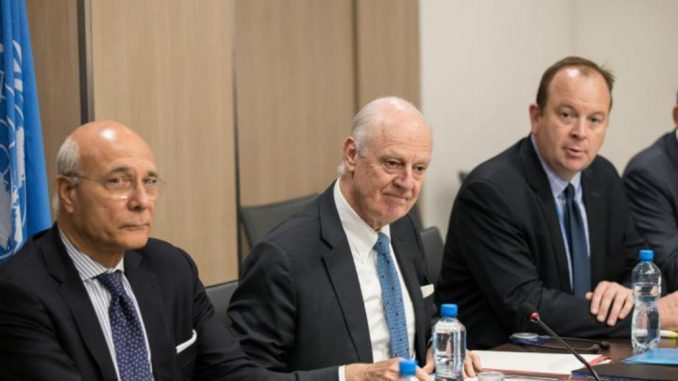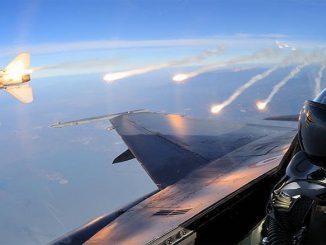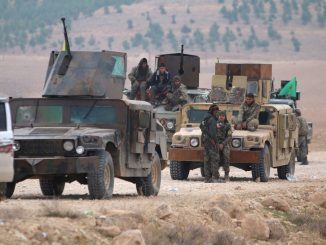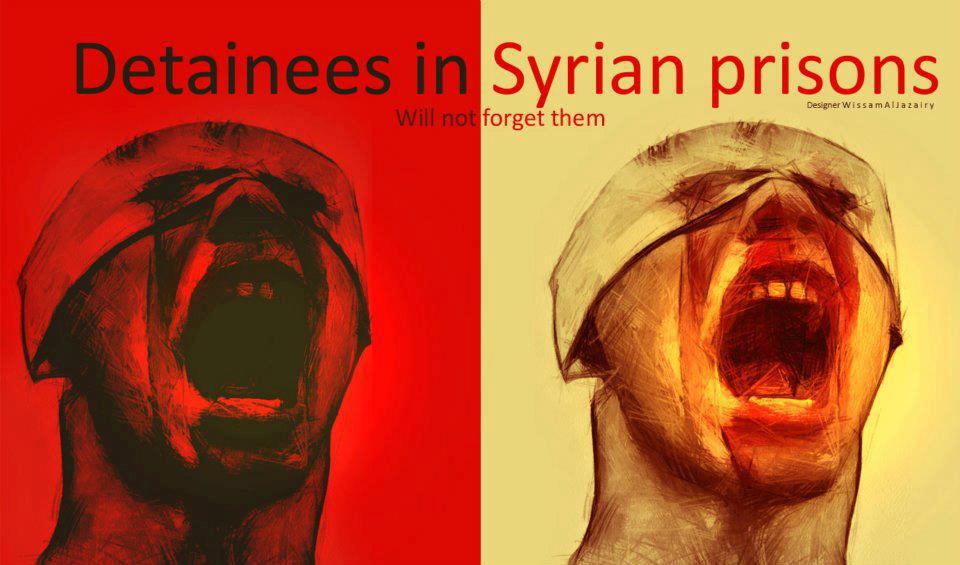
The fifth round of the UN-brokered Syria peace talks in Geneva ended on Friday the way it began, with dispute and trading blames between the warring sides, according to opposition figures, while UN mediator said the talks were progressive calling for new rounds.
The third round of Syria peace talks has started in Geneva on February 23. after it was previously planned to be on February 8. but delayed in order to take advantage of the results of Astana settlement about the ceasefire in Syria, which was planned by Russia, Turkey, and Iran.
De Mistura told the representatives of both delegations that they had a joint responsibility to end a conflict that had killed hundreds of thousands and displaced millions.
The opposition’s delegation accused the regime delegation of seeking to hinder the peace talks as its head said the main goal of the talks should be combating terrorism without mentioning the political process, while regime forces in Syria kept breaching the ongoing shaky truce and killed dozens of civilians since the talks started.
However, both sides could point to small victories. The talks ended with an agenda that paves the way for the political transition, the opposition’s central goal – based on three subjects: accountable governance, a new constitution and UN-supervised elections within 18 months.
A fourth subject was added after pressure from Russia and Assad regime, which is fighting terrorism.
However, the fourth round of peace talks, which started on March 24, has been greatly affected since it started by the developments on the ground, and both sides traded blames and accused each other of backing terrorism and hindering the solution.
Progressive talks, new round is needed
Both Assad regime’s delegation and opposition representatives had been “serious and engaged” during the latest nine days of talks in Geneva, UN mediator Staffan de Mistura told reporters.
He said all sides were “keen and ready to return to Geneva for a sixth round of talks,” adding that he would announce the date after discussions next week with UN chief Antonio Guterres and the UN Security Council.
The two sides, who met with de Mistura separately, did finally delve into some substance, after spending four previous rounds squabbling over the agenda.
They began discussing four separate “baskets” of issues, on governance, drafting a new constitution, elections and combating terrorism in the war-ravaged country.
De Mistura previously warned not to expect “miracles” and on Friday hailed the fact that no one had walked out. He acknowledged though that the talks still remained in the preparation stage.
“In every negotiation there are certain issues that need to be prepared … before the real, real peace negotiations start … and it is clear, we are not quite there,” he said.
“I cannot deny that there are serious challenges, and I am not seeing immediately this developing into a peace agreement,” he added.
He insisted that “we must maintain this incremental momentum on the political process, even if it is only incremental.”
The negotiating sides hailed that negotiations on substance had finally begun, but appeared less optimistic than their mediator that progress was being made.
Terrorists and adolescents
The chief negotiator on the government side, Syria’s ambassador to the UN Bashar al-Jaafari, was pessimistic after the talks, and mocked the opposition delegation as “adolescents”.
“We were looking forward to achieving … at least some progress in this round, but this did not happen,” he told reporters.
He maintained that his opponents “do not want a political solution, unless (it) is in accordance with their illusions … that we would hand over the keys to Syria to them.”
Ja’afari added that he only wanted to negotiate with someone “patriotic”, mocking the opposition delegation as “adolescents” who thought they were appearing on a television talent show such as “Arab Idol” or “The Voice”, and were under the illusion that government would simply hand over the keys to the country.
“In fact they are tools, they are mercenaries in the hands of their lords, their operators, and it seems they have not received instructions from them, except instructions to continue supporting terrorism and to create havoc in these rounds.”
Ja’afari said his delegation had given de Mistura documents on all aspects of talks – on elections, constitution, reformed governance and countering terrorism – but the opposition had not responded.
Ja’afari has earlier said that the rebel groups were now breaking the ceasefire and coordinating with Tahrir al-Sham, proof they were supporting terrorism and showing why terrorism needed to top the agenda.
“Anyone who objects to such an approach would simply reveal their true face which is being a sponsor of terrorism,” he said.
In addition, Jaafari commented on the latest US remarks about not prioritizing ousting Assad anymore, saying that the Nikki Haley, U.S. Ambassador to the U.N., was new and needed time to “digest and metabolize” the reality of the Geneva talks and complementary ceasefire talks in Astana.
“The future of Syrians will be determined only by the Syrians, not by the U.S. or any other ambassador,” he said.
A terrorist regime refusing any solution
Nasr al-Hariri, the chief negotiator for the opposition High Negotiations Committee (HNC), lamented to reporters that the opposition was dealing with “a side that does not want to reach a political solution.”
He said the “terrorist regime” of Bashar al-Assad had refused to discuss political transition during the talks and said Assad was a war criminal who must step down in the name of peace.
“They are solely discussing their empty rhetoric about countering terrorism,” Hariri told reporters, vowing there could be “no peace without justice.”
“War crimes and crimes against humanity must not be an option for negotiations. From now, venues must be found for transitional justice to ensure holding the perpetrators accountable,” he said.
In addition, he shouldered the regime the responsibility of “attracting terrorism” and reiterating that “the removal of Iranian and foreign militias was a prerequisite for the return of stability.”
He pointed out that the opposition delegation discussed in Geneva the constitutional procedures governing the political process “to guarantee the rights of the Syrian people” and the security measures to be implemented during the transitional period, in addition to the elections that is supposed to take place at the end of the transitional period, noting that the current round of Syrian negotiations had ended.
Hariri said the opposition “was seeking to participate in Geneva to put an end to the suffering of the Syrians,” adding that Assad regime killed more than 1,000 civilians since February 23. “Accountability for crimes committed should not be a negotiating item.”
He then stated that the opposition delegation presented to the UN envoy to Syria Staffan de Mistura a vision of the political transition, reiterating the position of the opposition saying “we will only accept the departure of Assad, and will not rest until we put the perpetrators of crimes in Syria to justice.”
The Syrian crisis began as a peaceful demonstration against the injustice in Syria. Assad regime used to fire power and violence against the civilians and led to armed resistance. 450.000 Syrians lost their lives in the past five years according to UN estimates, and more than 12 million have lost their homes.



